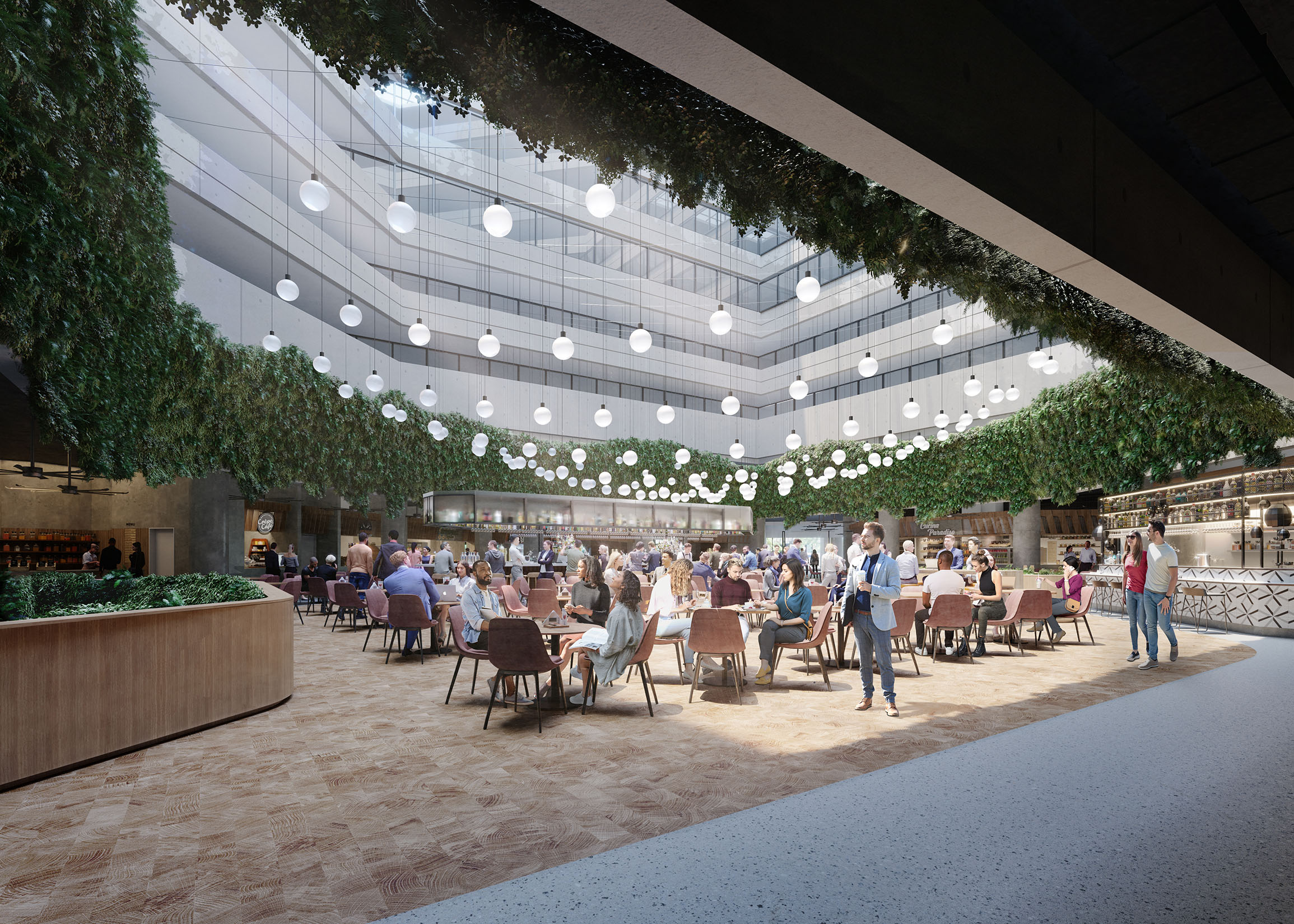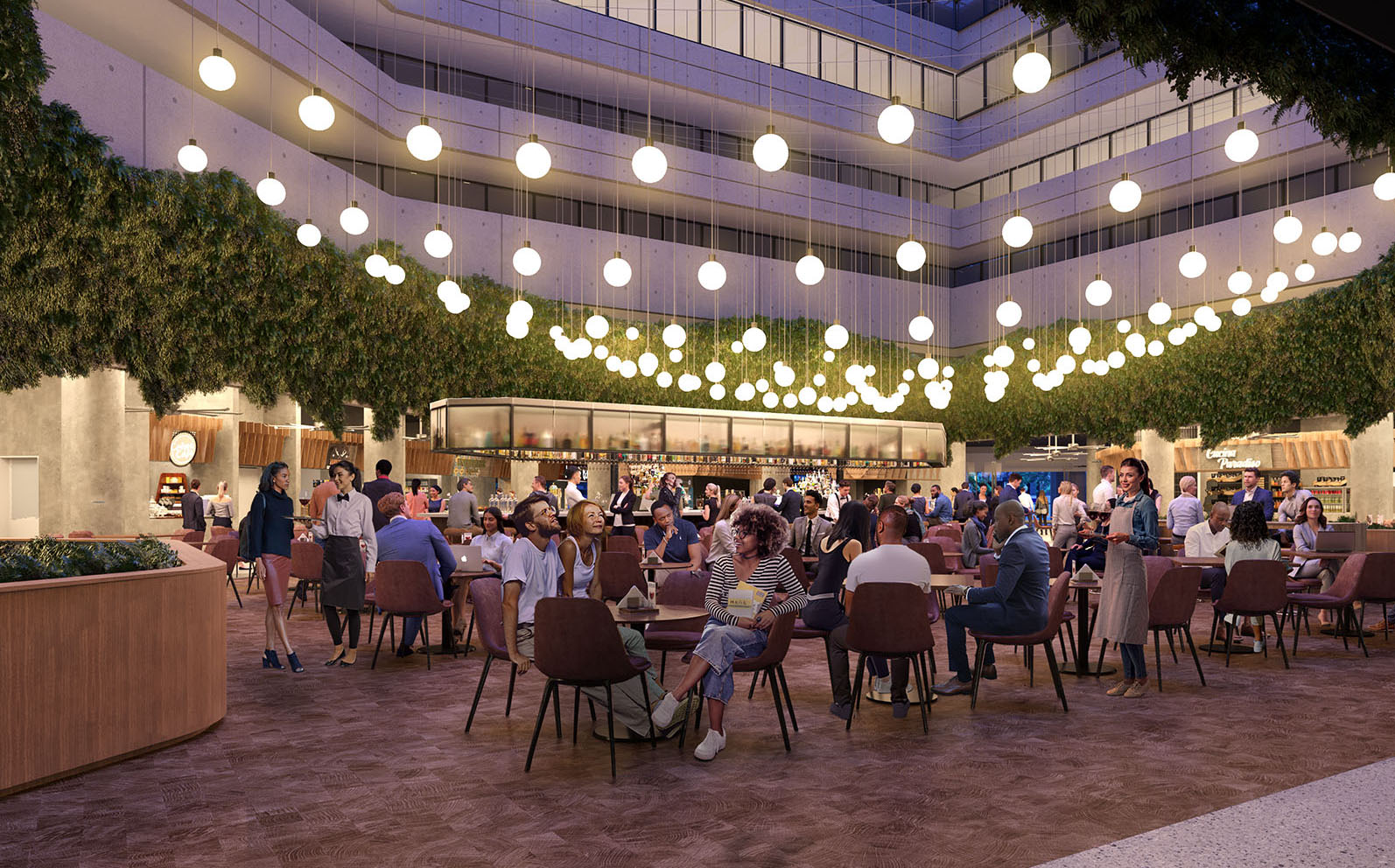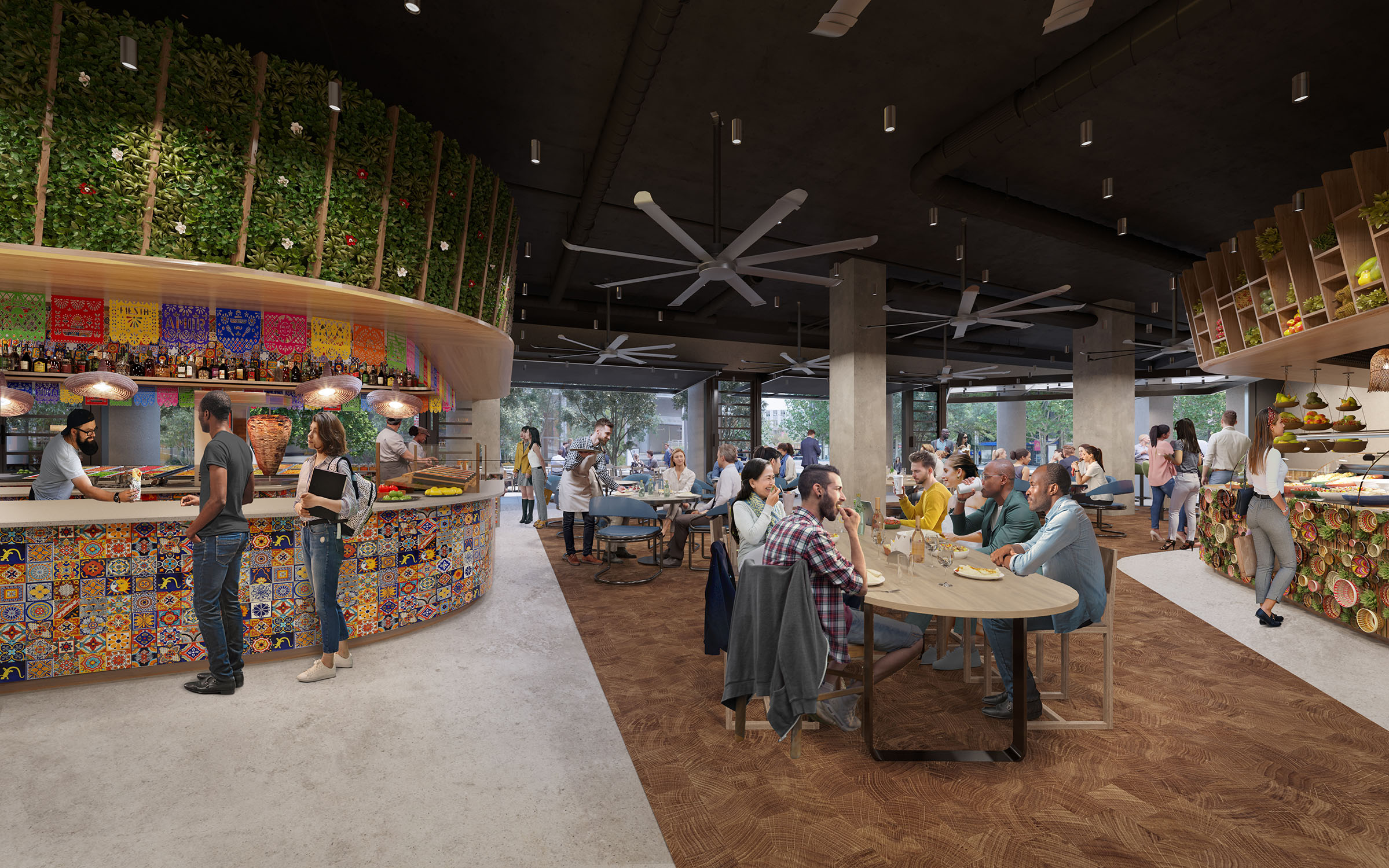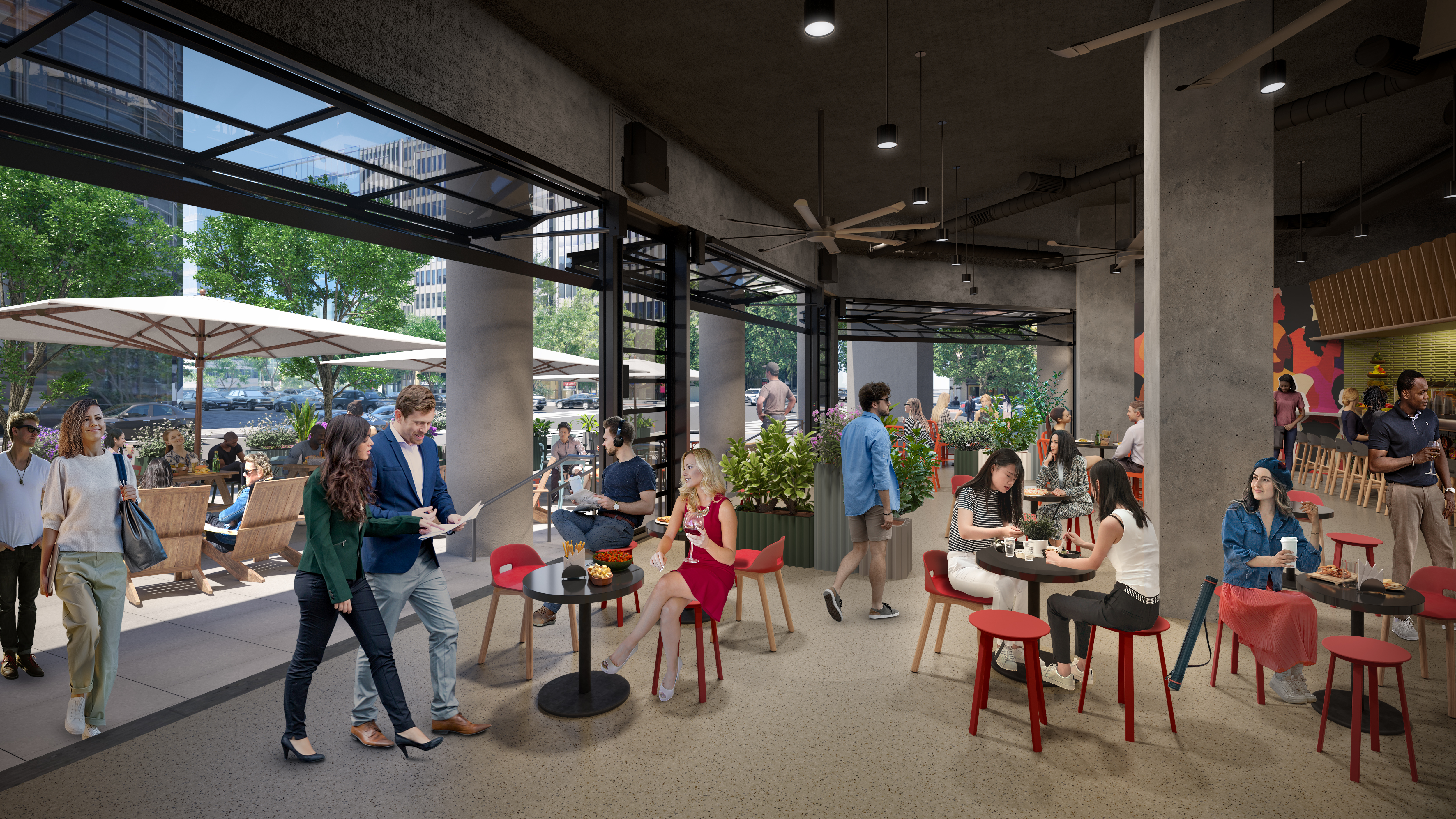The Washington, D.C., food scene has a new star. “The Square” is a culinary oasis that convenes renowned chefs and a fusion of flavors in an upscale “food hall” designed to elevate the capital’s dining experience. Housed within the prominent International Square office complex and sitting atop the heavily trafficked Farragut West Metro station, the chef-driven destination will open in stages throughout summer 2023, culminating in a grand opening event in the fall.
Spearheading the project are two industry luminaries, Richie Brandenburg and Rubén García, who have built their impeccable reputations launching numerous concepts and collaborating with a number of iconic chefs.
An ambitious culinary endeavor reimagines a bustling city corner
As a marquee property in Tishman Speyer’s D.C. portfolio and one of the largest privately owned buildings in the city, the 1.1 million-square-foot International Square office complex occupies nearly a full city block serving as the heart of the vibrant Central Business District.
Over the decades, the food court, which had long been the centerpiece, lost some of its luster. Rather than let it languish, the Tishman Speyer team decided to find new ways to tap its potential. “We saw this as a great opportunity to reimagine the building’s vast common areas and offer a destination for the local community,” explains Paul DeMartini, Senior Managing Director and Regional Director D.C., for Tishman Speyer. “We realized the quickest way to win hearts and minds is through food so we focused on a culinary-forward vision for the project, with both quality and variety at the top of our wish list.”
Honing in on the food hall concept led them to Brandenburg and García, who had been looking for the right partner to bring their dream to life.
“When they presented the idea for The Square, we immediately recognized its potential to accomplish our goal to reinvigorate the property, while providing a valuable asset for the entire community,” DeMartini says. Brandenburg and García saw the same serendipity in aligning with Tishman Speyer.
“They immediately understood our vision for the project. It was refreshing to talk with someone who had the same mindset,” Brandenburg says.
Innovation, partnership, hospitality and connected communities as key project principles
The threads of cuisine, culture and community are tightly woven throughout The Square. From the beginning, the team set out to establish a concept that would serve as a destination, while reflecting the ideals of hospitality and community.
The design evokes warm and inviting spaces, such as the traditional Spanish farmhouses where García spent time as a child and developed his passion for food and fellowship. “We wanted the ambiance to be the opposite of a typical ‘transactional’ experience,” DeMartini explains. “Whether a guest spends five minutes grabbing coffee or two hours indulging in fine cuisine, we want them to feel that guest-centric approach, rooted in an emphasis on hospitality.”
Innovative design is a hallmark of Tishman Speyer. While the firm is known for its strong core competencies in design, construction and deal structuring, it also embraces unique ideas that allow it to provide each client with a differentiated solution aligned to the ultimate goals for each project.
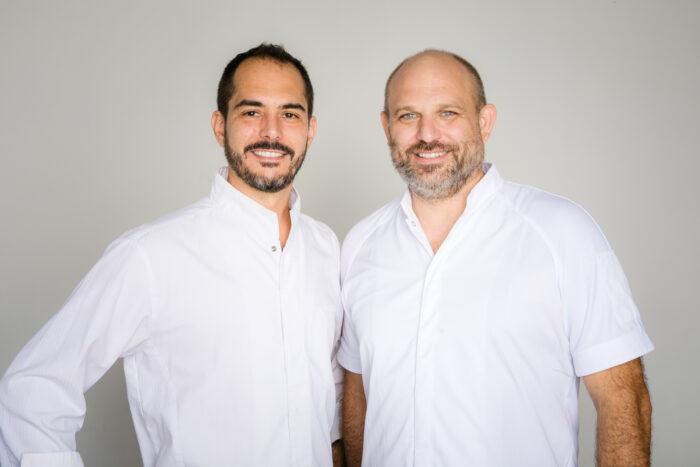
Naturally, that can add a layer of complexity, DeMartini notes. “It’s not typical to have open flame cooking in an office building or garage doors that roll up to provide exposure to the street, but we sought ways to make these key design features work. Richie and Rubénwere eager partners in allowing us to explore creative ways to engineer around the realities, without reducing or diminishing the quality of their ideas or their product,” DeMartini says.
“Since we all cared so passionately about the outcome, there were some conversations and even differences of opinion, but there were always solutions. Tishman Speyer always had the right people at the table to uphold our intentions,” Brandenburg says.
Turning up the heat on the D.C. food scene
While Tishman Speyer’s overarching goal was to re-establish International Square as the heart of the Central Business District, DeMartini is excited about its potential to become an unparalleled culinary landmark. “We wanted to extend the property’s use case and unlock its potential to become a gathering space for all of Washington D.C.,” he says. “Given the complex’s location with abundant parking and its proximity to a busy Metro stop, it presents an opportunity to serve more than weekday professionals, but also attract residents and visitors to enjoy the atmosphere.”
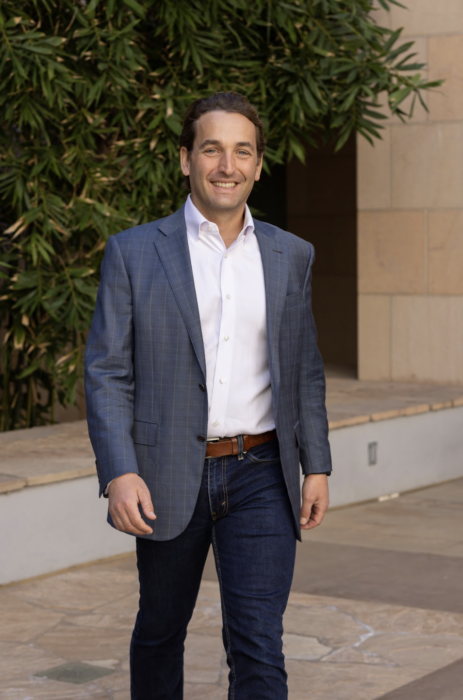
The city of D.C. is a melting pot, and The Square is designed to expose guests to a variety of different cultures through the food concepts that are being assembled – Peruvian, Filipino barbecue, traditional Japanese sushi and authentic Spanish, to name a few.
“When you start a restaurant, you first focus on your menu mix to make sure you have a beef dish, a chicken item, vegan offerings – something for everyone. That’s our goal, with different food stalls and chefs preparing a medley of cuisine types,” García says.
But it’s not just the cuisine that is innovative; the entire model is spurred by a desire to increase efficiencies and foster opportunities for collaboration. A primary pillar of the project was to create a structure that takes advantage of economies of scale. By sharing resources, each purveyor can provide top-quality products, at prices that will be palatable.
“We’re in this business because we love food, but over time we have realized the restaurant model is broken,” Brandenburg explains. “Many customers don’t understand the value of food – they get used to seeing chicken on sale at the grocery store for $1.90 per pound and think that’s what it costs. But when you go to a quality restaurant, they care about where the food came from in a way the grocery store doesn’t, which means they have to price it higher.”
And, he points out, the only way to manage prices is through volume. Therefore the chefs are committed to banding together so they can bulk buy from local farmers, realizing a better cost for a much higher-quality product.
Brandenburg describes the talent that has been curated as “all-stars,” who will be handling every section, from a chef who’s run Michelin star kitchens overseeing the commissary to noted luminaries in baking, curing and other disciplines overseeing their respective offerings.
The layout is conducive to an easy flow, similar to the European markets García grew up visiting. That’s the goal for The Square, to be a connector for D.C., he says. “We’re developing the space intentionally so that when someone crosses The Square, they’ll be tempted by the smells and the visual presentation. They’ll get that croissant or sushi roll and hopefully linger a while,” he says.
When complete, the collective will include:
- A unique collection of 16 artisanal food vendors
- A full-service restaurant and bar, plus a large bar in the central atrium
- An expansive outdoor dining space
- Curated events
- Welcoming indoor/outdoor lifestyle vibe
- Shoals Market, offering spirits, artisan products and rare culinary finds that are either crafted or inspired by The Square’s chef partners.
“With The Square, we have the opportunity to work with our friends every day as we cultivate an ambitious community of cuisine and hospitality that we know will become part of the fabric here in Washington D.C.,” García says. “Each chef is able to shine and share what they do best. It allows us to come together in a spirit of collaboration, helping International Square evolve into something that’s entirely different.”
This article was produced by The Real Deal’s Brand Studio Team in conjunction with Tishman Speyer. For more information about working with our Brand Studio Team please click here.



